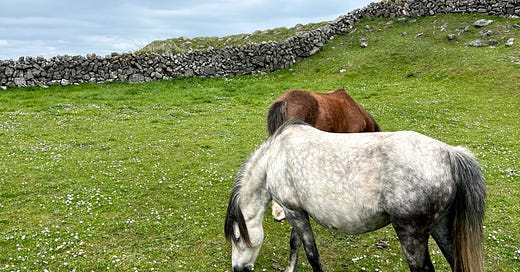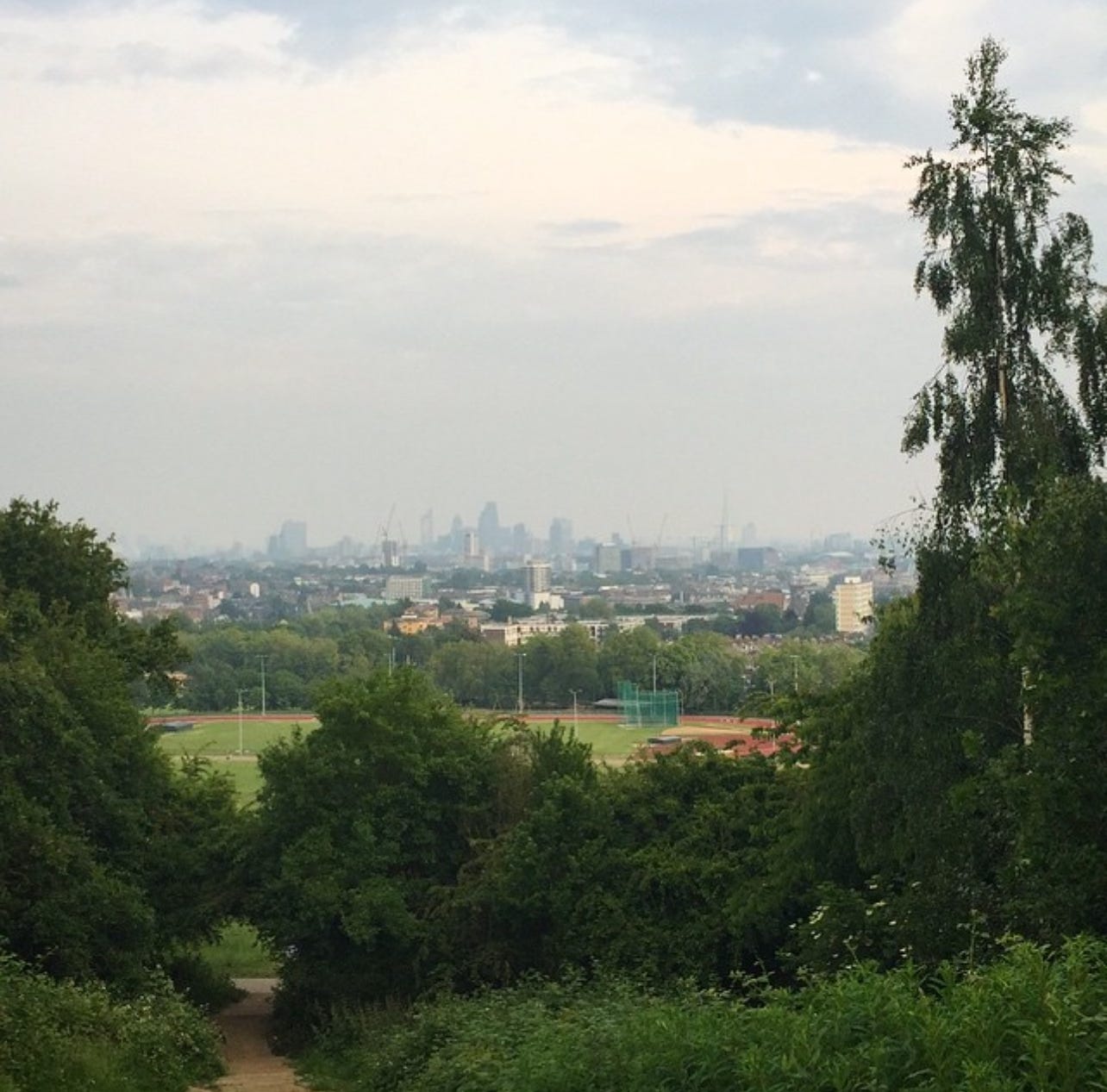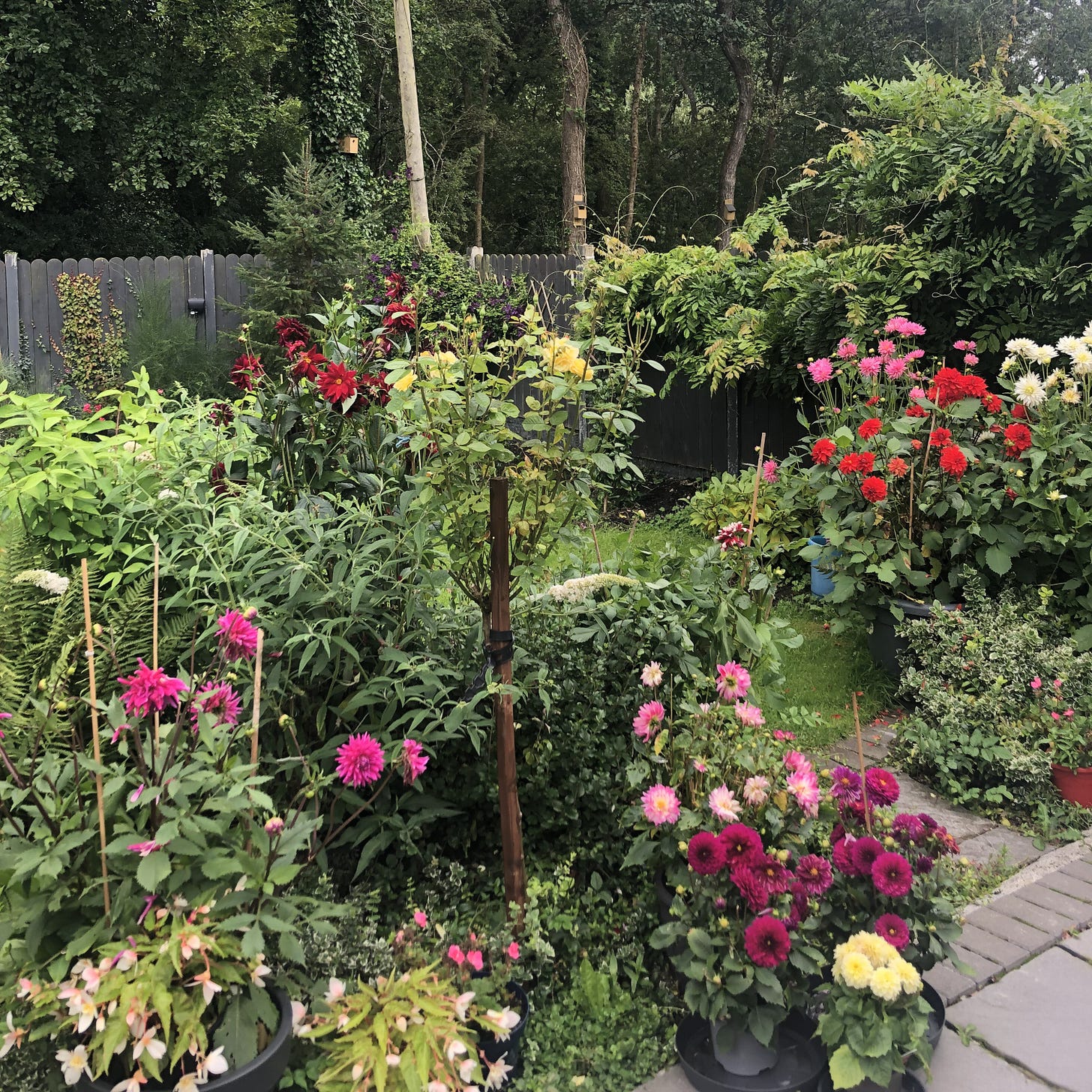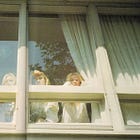brave enough is a newsletter that pulls at the threads of modern life, exploring our relationship with technology, nature and one another 🦋
I will never forget the day I moved to London. It was June and baking hot, the city’s air wiggling, a living oven. Music leaked onto the pavement from cars and open windows, flowing clear in the thick air. Slick teenagers wheelied around me on their BMXs while business people, barking frantically into mobile phones, darted along the concrete in purposeful lines. I was just a fifty-minute, short-haul hop from home, but I felt like I had accomplished something monumental, the volume of my life turned up several notches. I dumped my bags in an AirBnb in Islington, went to the Lloyds Bank at Charing Cross and opened a bank account. Then I made my way to Hampstead Heath and stared at the famous skyline in the flesh, the significance of my decision yet to reach my prefrontal cortex.
Most people on the planet find themselves in unspectacular places. To this day, I struggle to contextualise people who grew up in Manhattan or East London or Tokyo. I simply don’t know what to expect from people who were raised with so much excitement sizzling around them. These are holiday destinations, somewhere you move to when you’re older, not somewhere to grow up. Perhaps it was the steady diet of American TV – MTV, Sky, Nickleodeon – but growing up, I always had the distinct sense that exciting things were happening elsewhere, and that I wasn’t even circling the perimeter. That I, stuck in the middle of the Irish countryside, was somewhere without any consequence, and that this rubbed off on me personally.
By the time I reached the end of my school days, I was desperate to escape. Back then, when I thought bigger, I thought of Dublin, so that’s where I went. Immediately, all of the things I saw as inadequate about myself were mirrored back at me. On my first night at university, the student union organised a night out so that the freshmen could get to know each other. In the middle of a conversation with another student, she exclaimed: “Wow, you’re such a culchie!” (Culchie = someone from rural Ireland). I wanted to crawl out of my own skin.
For the next decade, I dedicated time and resources to the pursuit of worldliness. I backpacked around Central America and Asia. I read Chinua Achebe and Margaret Atwood and Haruki Murakami. I began meditating. Each morning, I furrowed my brow at breaking news, my finger on the pulse of political developments in countries I’d never been to. I cycled through apartments, friends, identities. I was a sponge absorbing whatever newness I could find. I was drawn to big cities for work experience, but also for the bonus they offered of making you interesting. It’s an easy antidote – especially when we live in front of flashing screens serving us an endless loop of other people’s highest highs.
Most people move away for two to five years before returning home embellished. They close the chapter, reabsorbing themselves into their homeland, their time away collapsing into photographs and dinnertime anecdotes. A strange thing happens to the rest of us. The ones who, for one reason or another, find themselves staying abroad, caught in the driftnets of love, work or simply too much time passing by. As much as I adore the life I've built, I fear the day when the time I've lived outside of Ireland surpasses the time I lived there. A fellow expat here in Berlin once told me that when she visits home, people sometimes comment on how out of sync she is after many years abroad. Someone actually remarked to her face: “Wow, you can tell that you haven’t lived here for a while!” I have brushed up against this myself. The disorientating feeling of old friends skipping ahead several chapters in life each time you see them. The sting of a fresh and important cultural reference flying right over your head. The words: “oh my god, have you not heard?” That is the complex selfishness that comes with living away from home. You expect everything else to stay frozen in time while you are galavanting on the other side of the world, and get hurt when it does not.
Often the things we try and escape the most are the things we should sit with, examine, lean into. The freckles or crooked tooth or pale skin you got teased for as a child become your most eye-catching physical attributes as an adult. The career shift you put off for years heralds metamorphic happiness. The place where you spent your childhood, with all of its imperfections, ends up being the key to unlocking who you really are.
This month marked ten years since I moved away from home, and I realised that I have much more work to do. If you spend all your time exploring new places, meeting new people, it can feel like getting to know yourself – but you’re actually colouring outside the lines. There's a strange irony in trying to escape yourself, only to end up right back where you started. On my journey of exploration, I somehow missed out the vastness of the centre, the continent of myself and my origins. Perhaps it was the onset of my thirties, but now the pendulum has swung in the other direction. Suddenly, I’ve become more interested in Ireland and my own Irishness, which was becoming a dusty relic on a shelf. I’m now fiercely possessive of all of the things I would have once given away cheaply – my accent, my ways, my history. Traditional Irish music, which I had never particularly cared for before, stirs something in me. I crave cold water, the icy greyness of the Atlantic that turns my skin pink. I listen to stories my parents tell me about my bygone relatives with newfound rapture. In the depths of myself, I’ve begun to search.
This April, I travelled to Ireland with friends from Berlin and London. We drove around The Burren, a national park and UNESCO world heritage site. Everything was familiar to me: the higgledy-piggledy fields, the crumbling churches, the wispy sheep and the smell of their shit. My friends stopped in their tracks at a dry stone wall. I watched in confusion as iPhones emerged from pockets. It was the most unremarkable thing I had ever seen. Stumpy stone walls, made without mortar, criss-cross the land all over rural Ireland. Many are ancient, constructed by peasants during the famine in the mid-19th century, and still standing sturdy. I’d stored these facts as general knowledge, but as I watched my friends snap pictures, the information began to synthesise, to take on new meaning. I saw the wall and realised, for the first time, that it was impressive. I felt the spirits of the people who carried the stones, the centuries of cloud and rain and sunshine that had struck the land, and I saw myself – a single link on this golden chain. That is the beautiful thing about time. It is short, but it sharpens our sight, each passing year offering a new prism with which to examine your life.
Recently, I spoke to another Irish person in a bar here in Berlin. “So, where are you from?” he asked in a polished South Dublin accent. I said the name of my comparatively unpolished hometown. He responded by laughing in my face. “Oh, I’m sorry,” he joked, sipping his Guinness with a faux-sympathetic expression. He expected me to play along, to slag off my village – but unfortunately for him, he had just met the new me. I remembered the version of myself who arrived at university in Dublin, a flower ready to be squashed. Now I was hardy, a thistle. I raised my eyebrows, asking curiously: “Why are you sorry?” This he didn’t expect. “Oh, I didn’t mean… I was just joking…” he said, flustered. I stared at him, my eyes blank, my mouth a flat line. He became so uncomfortable that he pretended to need the bathroom. Checkmate.
Wherever you go, you can never escape yourself. Life is a lottery, and while we don’t get to choose where we come from, we do get to choose our mindset. There is no place, no career, no accomplishment, no therapy that can replace what forged you. Peace is to see yourself, parts smooth and sharp, and to wear that identity with pride.











Great article- I’m more or less the opposite to you as I’ve lived in the place where I was born most of my life. I’ve always felt somewhat not “good enough” because of it. I think I agree now that it’s not so much where you’ve lived / where you’ve been as what’s going on inside. Thank you for such an insightful post
I love this!! I can definitely relate, I moved away (to London and Berlin as well haha) in my early twenties and now am back in my hometown at 30, entirely by choice. Being away helped me appreciate things about this city that I was never able to see before. Thank you for sharing your experience and good for you that you aren’t having it anymore 🙏